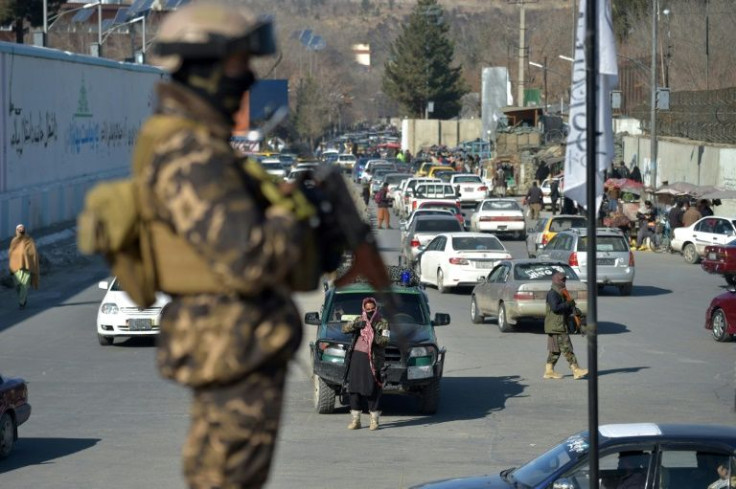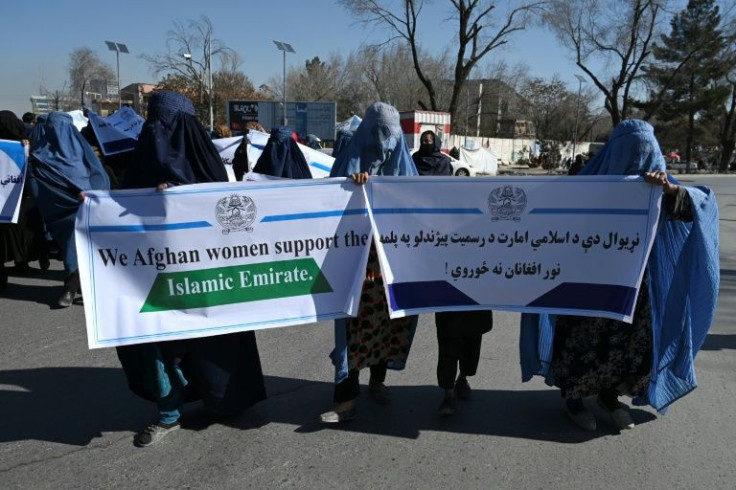Afghan Women Rally At Taliban Approved Protest
Scores of Afghan women rallied in Kabul on Wednesday in a Taliban sanctioned protest endorsing their regime and calling on the West to unfreeze the nation's assets as its humanitarian crisis deepens.
Since taking power in August the Taliban have come down hard on dissenting demonstrations while shepherding protests endorsing their austere brand of Islamic rule.
On Wednesday, Taliban fighters looked on as around 100 women -- many wearing all-covering burqas -- gathered in front of the abandoned US embassy in the Afghan capital.
Some wielded placards reading: "We Afghan women support the Islamic Emirate," referring to the name given by the Taliban for its regime.

Banners also called on Washington to open access to $9.5 billion in Afghanistan central bank assets, which it froze when the hardliners seized power following a hasty withdrawal of US-led forces last year.
Since the Taliban returned to office they have grappled with a rising humanitarian crisis.
Foreign aid representing about 80 percent of the country's budget stopped overnight and more than half of the population faces hunger this winter, according to the United Nations.
"The US should immediately release the money of Afghanistan," said Basri Deedar, a principal of a girls' school and an organiser of the rally.

Wednesday's demonstration was held the day after a Taliban delegation wrapped up a landmark visit to Norway, seeking aid to tackle the humanitarian crisis.
It was the first visit the Taliban made to a European country since seizing power.
During discussions in Oslo, Western officials clearly linked the resumption of aid to the Taliban's treatment of women.
Women's rights were trampled during the Islamists' first regime from 1996 to 2001, and while promising a softer brand of rule this time they have introduced tightening restrictions on travel, work and education.
Meanwhile its fighters have forcefully dispersed protests by women demanding equal treatment.
"The international community should not use women's rights as an excuse to harass Afghans," claimed Deedar.
"Those who act against the Islamic and national values of the country are not representatives of Afghan women."
Last week two women activists who had been protesting against the Taliban went missing from their homes.
The Taliban have denied detaining them.
© Copyright AFP 2024. All rights reserved.











